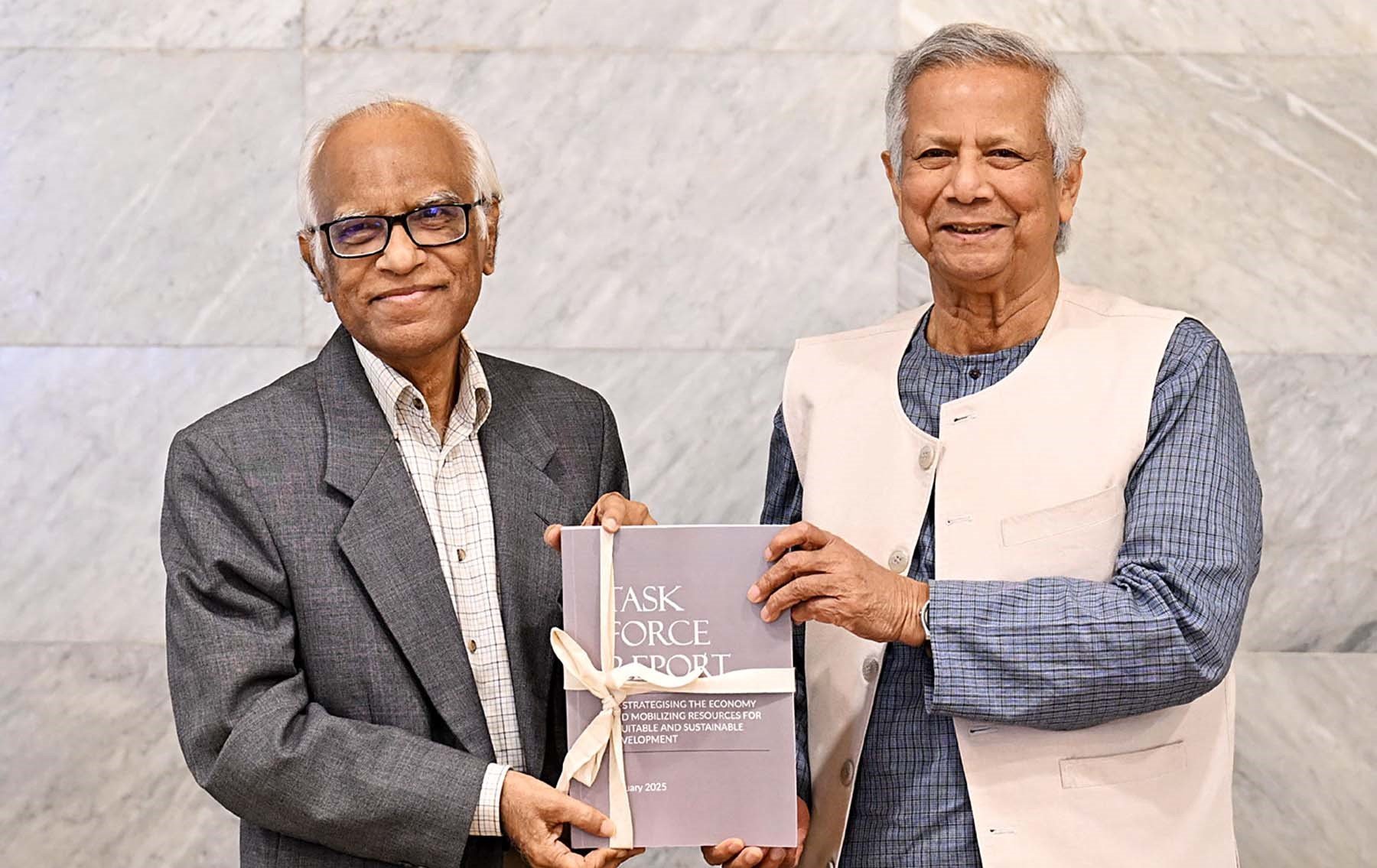News Flash
News Flash

DHAKA, Feb 3, 2025 (BSS) - A taskforce of the interim government has recommended establishing an independent 'Anti-Goon Squad' aiming to combat widespread extortion prevailing in the every spare of the society.
"A recurring and significant issue faced by citizens in accessing public services - such as purchasing train tickets or obtaining passports - is the prevalence of extortion. This deeply entrenched problem extends beyond public services into markets, transportation systems, and construction sites," says a report of the taskforce.
So, the taskforce has strongly recommended the establishment of the independent "Anti-Goon Squad" to address this urgent concern.
It observes that this dedicated unit could operate within the public sector or be outsourced to private security firms, provided there are robust safeguards to prevent misuse.
"Moreover, monitoring and oversight by Youth and Citizen groups must play a central role in ensuring the squad's effectiveness. Continuous fine-tuning and adjustments to its operational procedures will be necessary to keep the initiative responsive to emerging challenges," the report reads.
Leveraging Digital and AI Technology
The taskforce observes that a major strategic emphasis is required within key sectors such as education, health, agriculture, and public institutions to facilitate the widespread adoption of digital and artificial intelligence (AI) technologies.
For instance, employing satellite sensing technology can enable effective crop early-warning systems to improve agricultural practices, while distance education can ensure that learning continues uninterrupted regardless of geographical barriers.
"By integrating these advanced technologies, we can enhance quality, efficiency and access across multiple sectors, ultimately improving outcomes for the entire population," the report says.
Reducing the Digital Divide
The taskforce recommended taking a critical strategy to utilise digital and AI technologies effectively to bridge the existing digital divide.
It calls for reducing data costs, increasing access to affordable smartphones - implemented with appropriate safeguards for age-specific content - and fostering the growth of a robust domestic software and hardware ICT industry.
"By promoting widespread digital access, we can empower citizens, enhance digital literacy, and stimulate innovation within the ICT sector," the report mentions.
Reforming the Planning Process
Bangladesh's planning process has faced significant challenges that have led to inefficiencies and a lack of coherence in policy implementation. Reforming this process is of utmost urgency.
This reform initiative requires a comprehensive thrust in governance practices, monitoring and evaluation (M&E) frameworks, and improved policy-making processes, according to the taskforce.
It stressed the need for enhancing project implementation arrangements and inter-departmental coordination to ensure that development goals are met effectively and efficiently.
Professionalisation of Leadership
The taskforce asks the government to assign qualified technocrats to leadership positions within technical departments, divisions, and institutes, rather than appointing generalists who may lack necessary expertise.
This shift away from archaic practices will ensure that leadership is informed and capable of making critical decisions relevant to their fields.
The immediate benefits of such a strategic change could include improved project outcomes, better service delivery, and heightened accountability within public institutions, according to the report.
Education and Planning Adviser Professor Wahiduddin Mahmud recently handed over the report of the taskforce on "Re-strategising the Economy and Mobilising Resources for Equitable and Sustainable Development" to Chief Adviser Professor Muhammad Yunus.
The 12-member taskforce was formed on September 10 to reframe the development strategies, find out leakages in financial system and restore discipline in project implementation.